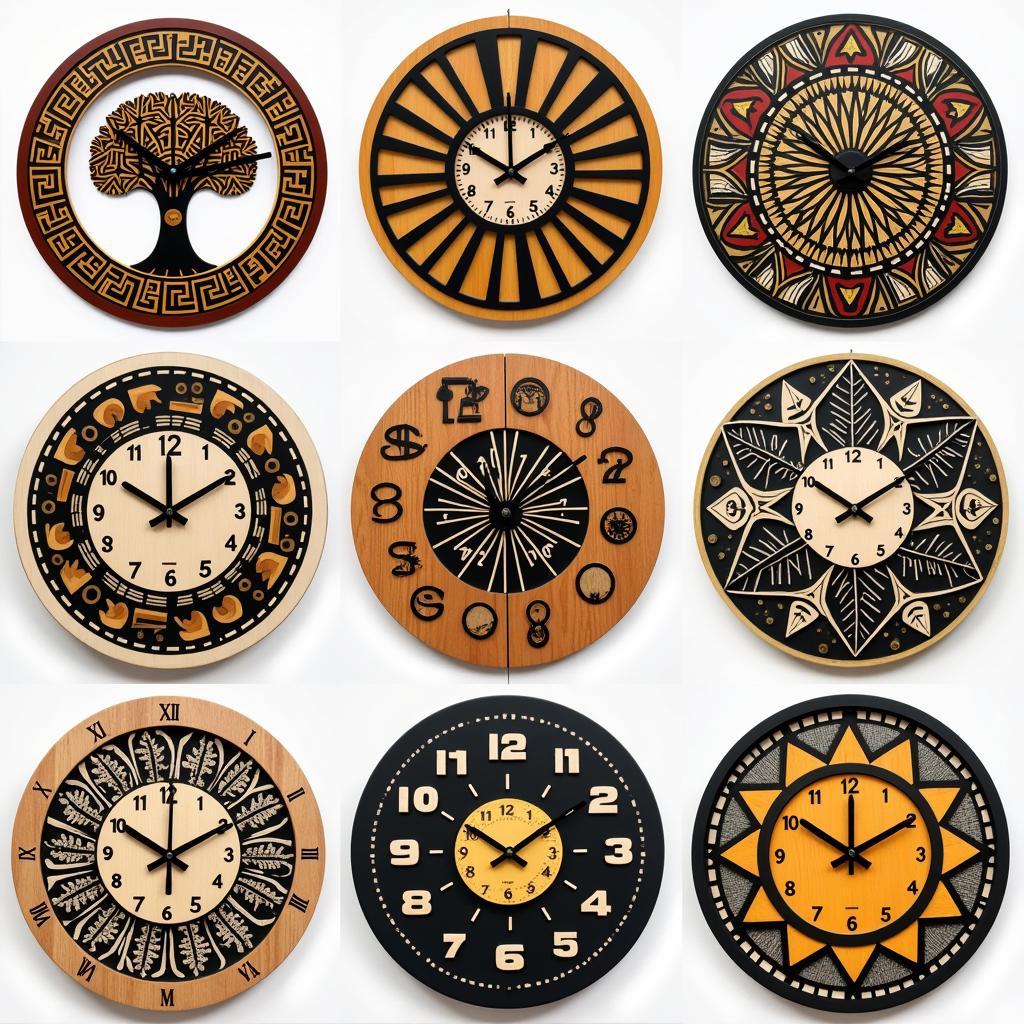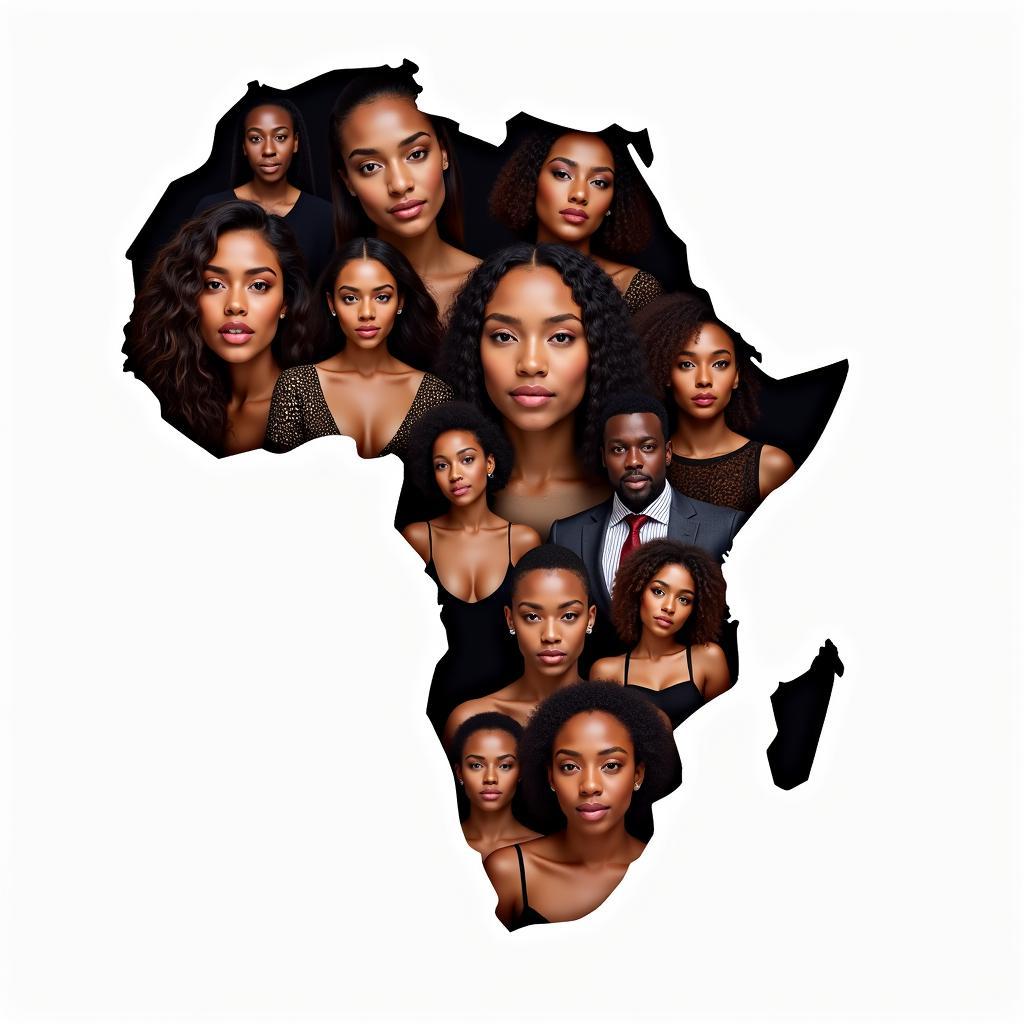Unlocking the Secrets of the African Clock
The African Clock isn’t just a time-telling device; it’s a reflection of a rich cultural tapestry, encompassing diverse perspectives on time, community, and the rhythm of life. From ancient traditions to modern interpretations, the concept of “African clock” offers a fascinating glimpse into the heart of this vibrant continent. african concept of time
Exploring the Concept of “African Time”
What exactly is “African time”? Often perceived as a flexible approach to punctuality, it’s rooted in a different understanding of time itself. Rather than being rigidly structured, time in many African cultures flows more organically, prioritizing relationships and communal harmony over strict adherence to schedules. This nuanced perspective challenges Western notions of time management and offers a valuable alternative.
 African Time Concept Illustration
African Time Concept Illustration
The Influence of Oral Traditions on Timekeeping
Oral traditions, passed down through generations, have played a significant role in shaping African concepts of time. Stories, proverbs, and songs often incorporate cyclical patterns and natural rhythms, reflecting a deep connection to the environment and the changing seasons. This emphasis on cyclical time contrasts with linear time perceptions often dominant in Western societies.
Traditional African Timekeeping Methods
Long before the advent of modern clocks, African communities developed ingenious methods of tracking time. These methods, often deeply intertwined with nature and spirituality, provide a unique window into the ingenuity and resourcefulness of African cultures.
Observing the Sun and Stars
The sun and stars served as natural clocks, guiding daily activities and seasonal cycles. By observing the movement of celestial bodies, communities could accurately predict weather patterns, planting seasons, and important events.
The Significance of Natural Rhythms
The natural world, with its rhythmic cycles of day and night, tides, and seasons, provided a framework for understanding time. The sounds of animals, the flowering of plants, and the changing weather patterns all contributed to a rich and nuanced perception of time’s passage.
African Clocks in Art and Design
The “African clock” isn’t limited to traditional timekeeping methods. It also finds expression in artistic creations, reflecting cultural values and aesthetic sensibilities.
Contemporary Interpretations of African Time
Modern African artists and designers are reimagining the concept of the African clock, creating unique pieces that blend traditional motifs with contemporary aesthetics. These artistic interpretations offer a fresh perspective on African time, bridging the gap between past and present.
 Modern African Clock Designs
Modern African Clock Designs
Conclusion: Appreciating the Diverse Rhythms of the African Clock
The “African clock” is more than just a means of measuring time; it’s a window into the rich cultural heritage and diverse perspectives of the African continent. By exploring the various facets of African time, we gain a deeper understanding of the interplay between culture, community, and the passage of time. 10 30pm african time
FAQ
- What does “African time” mean?
- How did traditional African communities measure time?
- How is the African clock represented in art and design?
- What is the significance of cyclical time in African cultures?
- How does the African concept of time differ from Western perspectives?
- What are some examples of modern African clock designs?
- How do oral traditions influence African timekeeping?
If you have any further inquiries, feel free to contact us!
Contact Us:
Phone: +255768904061
Email: kaka.mag@gmail.com
Address: Mbarali DC Mawindi, Kangaga, Tanzania.
We have a 24/7 customer support team ready to assist you.

